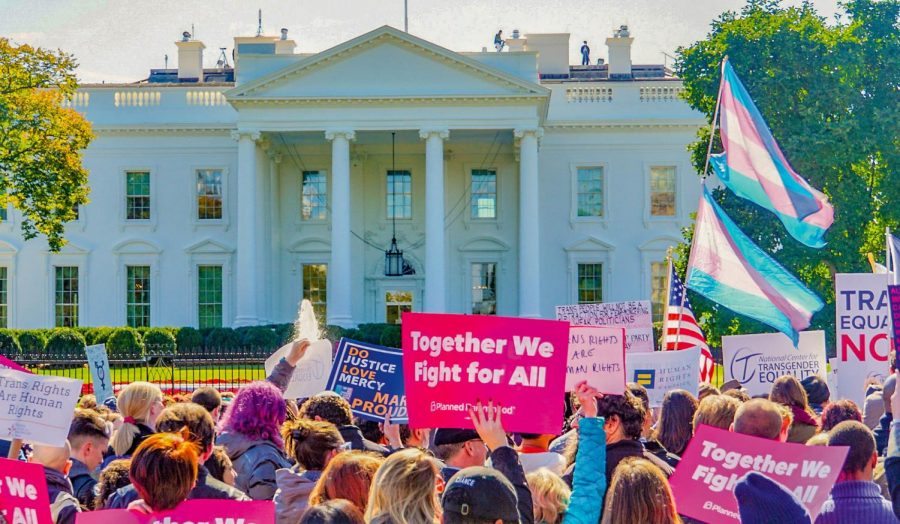Changing standard for allyship: stepping up, speaking out
The United States alone has 1.4 million transgender adults.
Sunday, Oct. 21, the day before early voting started in Texas, the New York Times leaked a memo, stating that the Department of Health and Human Services is planning to legally redefine “sex” to be based on a person’s genitalia observed at birth.
I won’t get into how this primitive oversimplification of sex fails to account for the multiple factors that comprise sex such as psychology, chromosomes and hormones. I also won’t get into how this would undeniably invalidate trans, intersex and nonbinary people, sending them into spaces that don’t correspond to their gender or even question how this will be monitored and enforced.
There’s an estimated 1.4 million transgender adults in the United States, leaving about 326 million cisgender folk, meaning that there’s a good likelihood I’m writing to a cisgender reader.
So, we’ve got some work to do because, though this community is less than one percent of the U.S. population, it matters all the more for its meager size. “How a society treats its most vulnerable is always the measure of its humanity.”
As this marginalized community pushes for its human rights, the goals of mobilizing allies always evolves with it. Where tolerance once sufficed, acceptance took its place. Now, especially in this administration’s wave of attacks on the trans community, acceptance is not enough; allies must take action.
I’m sure many people of color can relate to the frustration of witnessing a white person deny and ignore their own white privilege, staying silent when their louder voice would be most heard. When we’re in that more marginalized position, we understand this power dynamic so well, how much power the privileged person holds to be heard and respected and how much we wish they would yield it to our benefit.
In this current situation, we cisgender folks are the privileged ones. We are the ones with voices that others will hear more readily; with oppressive systems and institutions built to cater to us and not against us. We can afford to look away, and that is every reason not to. It’s our turn to be the allies we would want to have.
As a member of the LGBTQ community who is not trans or gender non-conforming, I’m including myself as an ally, too. The LGBTQ community encapsulates a multitude of different identities, and it’s not enough to be grouped together. We need to learn about and support one another.
As an ally, the core of any action is amplification. Amplifying trans voices, trans stories and introducing dialogue around the trans community into spaces where they otherwise would not be. This can take a number of forms and for this specific bill it might look like researching the changes being proposed, listening and reading about what trans people are saying in response, talking to friends and family about their opinions, volunteering your time or money to local, state or federal advocacy organizations or joining local protests in your town.
The Out Magazine has already published several helpful ways for allies to take action to support their trans siblings.
Allies, we must do this work with the same agency and urgency as if our own lives depended on it, because while we’re privileged that our lives aren’t endangered by this, the trans community isn’t.

I am Lilli Hime—English Writing and Rhetoric major and freelance writer at Hilltop Views. This is my senior year at St. Edward's University.
My role...







